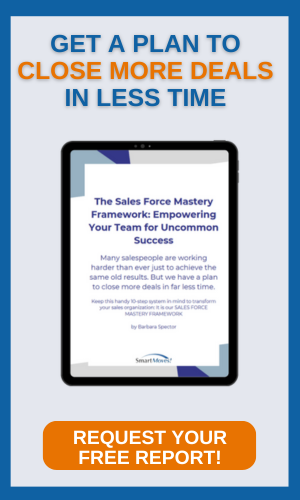
Us poor millennials. We’re generation screwed — by school debt, the economy, in politics, and by our Boomer, Gen X bosses. We have become a sort of inconvenient truth inside the working world.
Job-hoppers, narcissists, attention/trophy seekers, needy over-sharers, we’ve been called them all. Not a day goes by without another article in mainstream media over-analyzing us, trying to make sense of us, prescribing the perks to attract us, bewailing our rise to majority working demographic by 2020. A cottage industry exists explaining us to companies, consulting on how to deal with us, attract us, keep us, coax us every way, and so on.
Well, here we are. The time of reckoning is here. It’s time to set the record straight. What do we want from work?
As a millennial myself who’s worked in law and finance, tech and healthcare — both for large corporations and small startups — I’ve seen the spectrum from the great to awful in a company’s approach to attracting, managing and retaining its millennial talent. Aside from Google, Facebook, Apple and a couple dozen giants, large corporations typically are slow and tone-deaf to adjust incentives and benefits to attract top talent. Too many startups simply chase the latest perks without much thought to long-term practices that keep the best employees in.
What is it that we want from work, in short?
According to Harvard Business Review, in descending order of importance, we want to have our work mean something; we want to solve problems with the environment and society, interact with cool and interesting people, find prestige in the company we work for, do work we’re passionate about, become an expert, maintain work-life balance, progress in our careers, achieve financial security, and start our own businesses.
As it turns out, this is quite similar to all the other generations before us, with some variation.
There’s more to actuality than surveys can appreciate, however. There’s the experience of life and that of coaching.
Forbes Coaches Council is an invitation-only community for leading business and career coaches. Do I qualify?
A culture of “gigs,” not jobs, and sharing vs. owning as the norm have seeped into the ethos of this generation. Those unpaid internships and portfolio careers are normal; loyalty, an artifact. Changing careers is common and has never been so easy. Just hire a coach, and make the move in weeks.
Perhaps the difference between millennials and past generations is the speed of change, not underlying motivations or desires. Everyone wants a dream job, but we millennials expect it.
Because we are so quick to move, we want our job performance feedback now, or else. We treasure openness, transparency, ethics and social impact.
These are the lofty standards we hold our employers to. While there is ever greater progress by employers (and our laws) to tackle ills of yesteryear (like the gender wage gap and the spectrum of discrimination), reality is all too often incompatible with vision.
As always, there’s inherent tension between duty to the company and self. Not all the work we do can possibly be interesting each day, each week. Yet clearly, there is consciousness among HR professionals that something different must be done to keep, not just attract millennials.
The Zappos companies of the world attempt a flat hierarchy, while the Gravity Payments standardize their salaries. Valiant, but largely fruitless efforts, all, in my opinion.
What’s worked and what has flopped? Let’s take a look.
One startup trend is unlimited vacation, but who can take advantage of this when nobody wants to be the first to fly? What can free snacks do for your future aside from making you fat?
The foosball tables will just stand there without use. Those open floor plans? A nuisance to real productivity.
More effective perks and benefits include free healthcare and proactive management thereof, employer student loan repayment and tuition reimbursement, 401(k) matches from Day 1, regular feedback on performance, and quarterly company retreats and monthly town halls to get all employees to hear how things are going, what is being done, and the strategy and tactics of each function and effort. Tech budgets for each newbie, dedicated time for outside projects, plus internal hackathons — all this builds trust, loyalty and new ideas that can grow into streams of revenue.
Not every perk or benefit is scalable or economically tenable for every company. While health and money management are key, each company must look beyond the obvious to keep its best. But transparency on company and personal performance is essential. Commitment to good health (financial as much as physical), a smarter, wiser team, great tech, sustained career development and coaching, plus fair compensation — these are the start of thoughtful and effective human capital management for millennials. Some companies have even started to encourage taking jobs outside to gain a different perspective, only to hire such employees back in.
In such a paradigm, “skin in the game” exists and all the big incentives are aligned.
Like us or not, millennials are here to stay. The companies that lure us in must do a better job of keeping us by asking each of us directly (not the “experts”) what we really want and need from work, learning about the values we espouse, leaving us room to do things our way, giving us the resources and leverage to let us do our life’s best work.
Those that succeed will reap not only breakneck innovation but cross-pollination between industries, worldviews, cultures and technologies — plus new ways of doing business. Everyone wins this way. The ones that fail to “get us” will not keep us and will fall behind and ultimately fail.
And in the end, worker millennials are also consumers — and we know we’re king.
Entitled? Maybe. Crazy? Like a fox.
Want to keep your millennials engaged? Call us 800-700-6507. We have lots of solutions for you.
POST WRITTEN BY Yuri Kruman
CEO / Founder of Master The Talk Consulting. Career/Business/Life Coach. Startup Exec/Advisor/Investor. Published Author.





